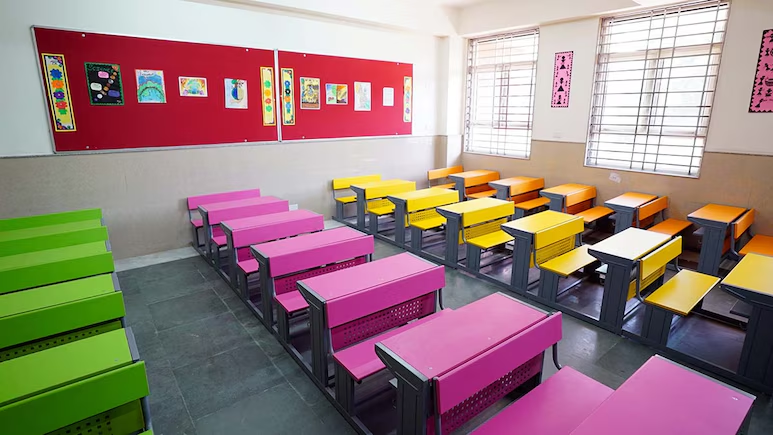
The Union Education Minister Ramesh Pokhriyal ‘Nishank', on Wednesday, launched “learning enhancement guidelines” for the continuing education of students during the COVID-19 outbreak. The ‘Students' Learning Enhancement Guidelines' were framed by the National Council of Education Research and Training (NCERT) for students with or without the digital resources to continue learning while schools are still shut to prevent the spread of the coronavirus. These guidelines seek to help children who cannot access online learning as well, recommending ways to learn at home.
Launching the guidelines online, Mr Pokhriyal said: “These guidelines emphasize upon the community working closely with the school to get learning materials such as workbooks, worksheets, etc. delivered at the doorsteps of children by teachers and volunteers. It also suggests teaching local students by volunteers or teachers setting up television at the community centre and maintaining social distance norms.”
Launched Students' Learning Enhancement Guidelines formulated by #NCERT for students to deal with during & post #COVID19 situation. pic.twitter.com/Sv3HkgafsQ
— Dr. Ramesh Pokhriyal Nishank (@DrRPNishank) August 19, 2020
The decision to come up with these guidelines were taken in response to complaints that the children without access to digital resources were getting left behind as classes went online. But first, the NCERT conducted a survey involving over 34,000 students, parents, teachers and principals to understand the gravity of the problem. These stakeholders were all linked to centrally-run Kendriya Vidyalayas and Navodaya Vidyalayas and schools affiliated to the Central Board of Secondary Education. About 40% of the respondents reported facing at least some difficulty with online classes.
The NCERT's new set of guidelines suggest measures for three types of models -- students not having any digital resource; students with limited digital resources; and for students with available digital resources for online education.
Continuous Learning And States And UTs
To ensure inclusive learning in remote areas where internet connectivity and electricity is poor, several states and union territories have come up with innovative initiatives (TV and radio programmes), however, there exists a major portion of learners who do not have access to digital devices.
Thus, online or digital education, as per the guidelines, cannot be “an option for such families and their children, and heavy reliance on it under the assumption that learners will somehow manage access, is altogether a faulty supposition”.
The new guidelines suggest a continuous learning plan for each child of each class with special reference to their accessibility to resources. Setting up a helpline at a community center with the help of panchayati raj and forming a team of volunteers to help students without access to digital resources are among a few measures listed in the guidelines. It also suggests to teach local students by volunteers or teachers setting up a television at a community centre and maintaining social distancing norms. The guidelines further recommend orientation of parents to support and participate in the learning of their children.
